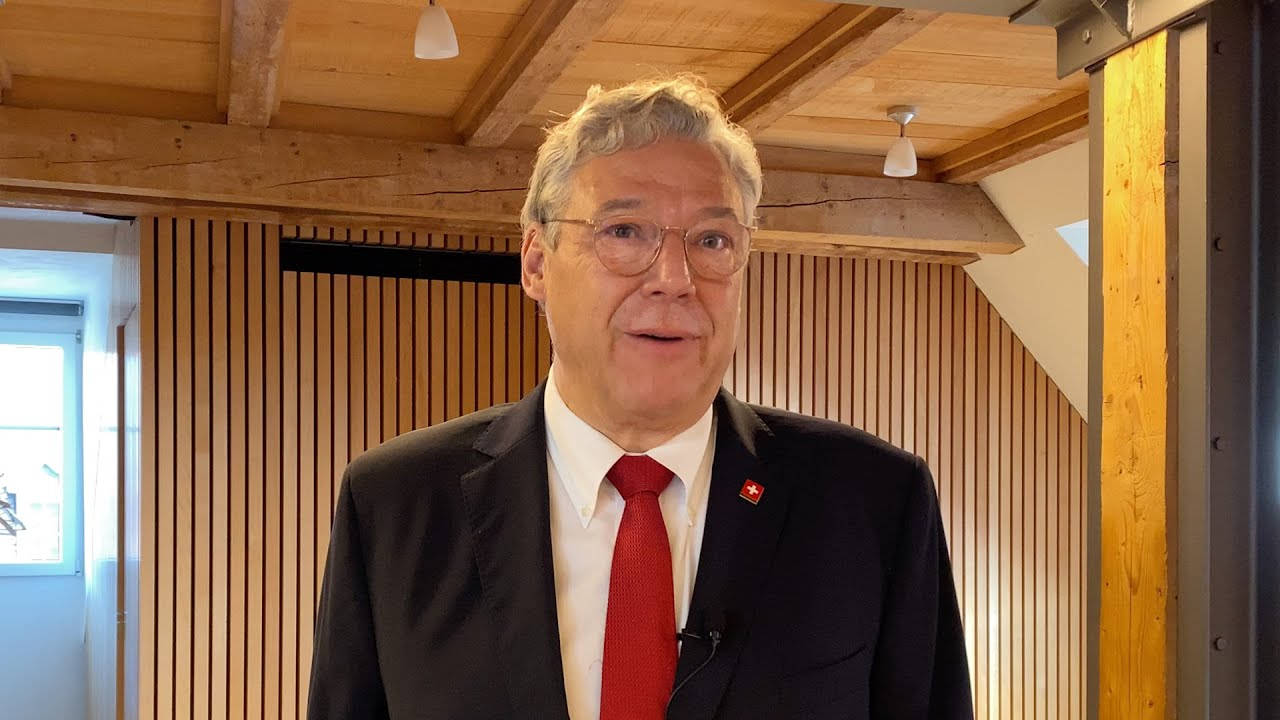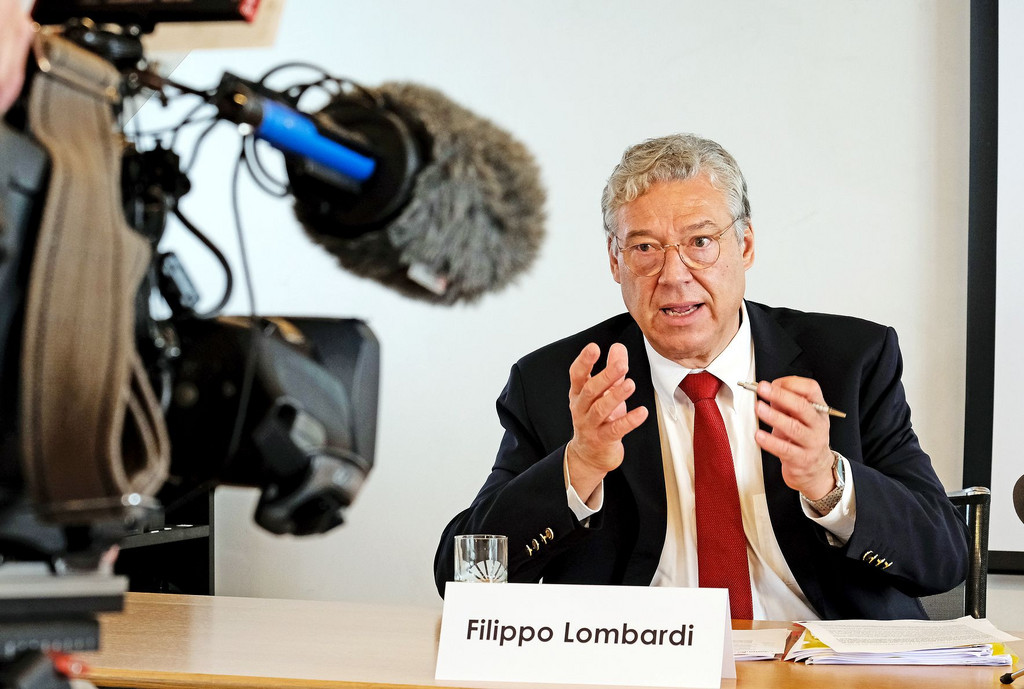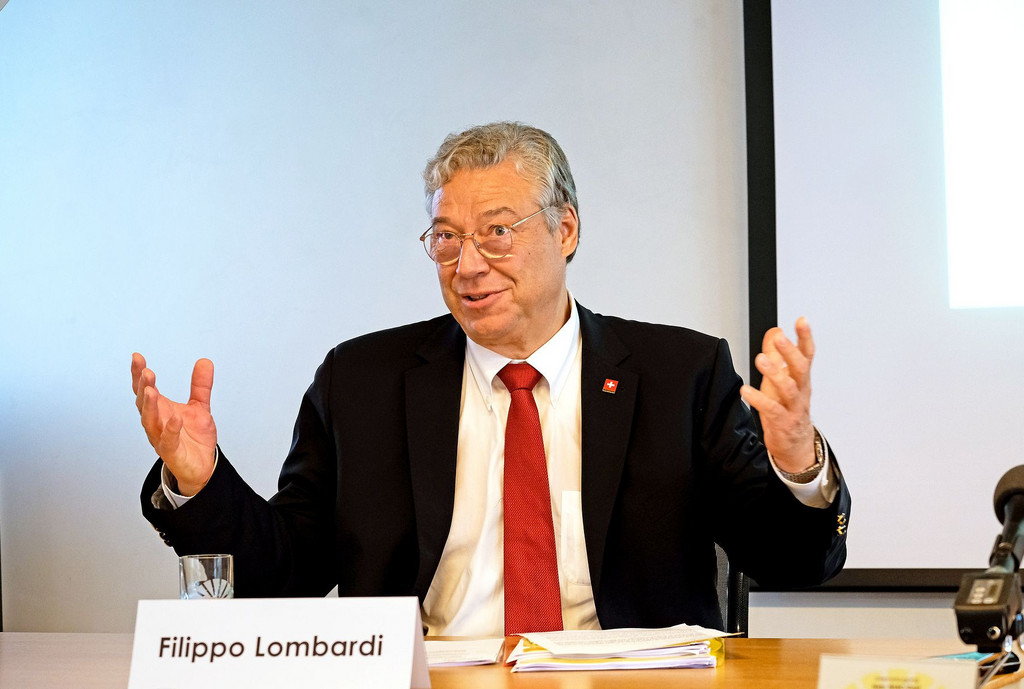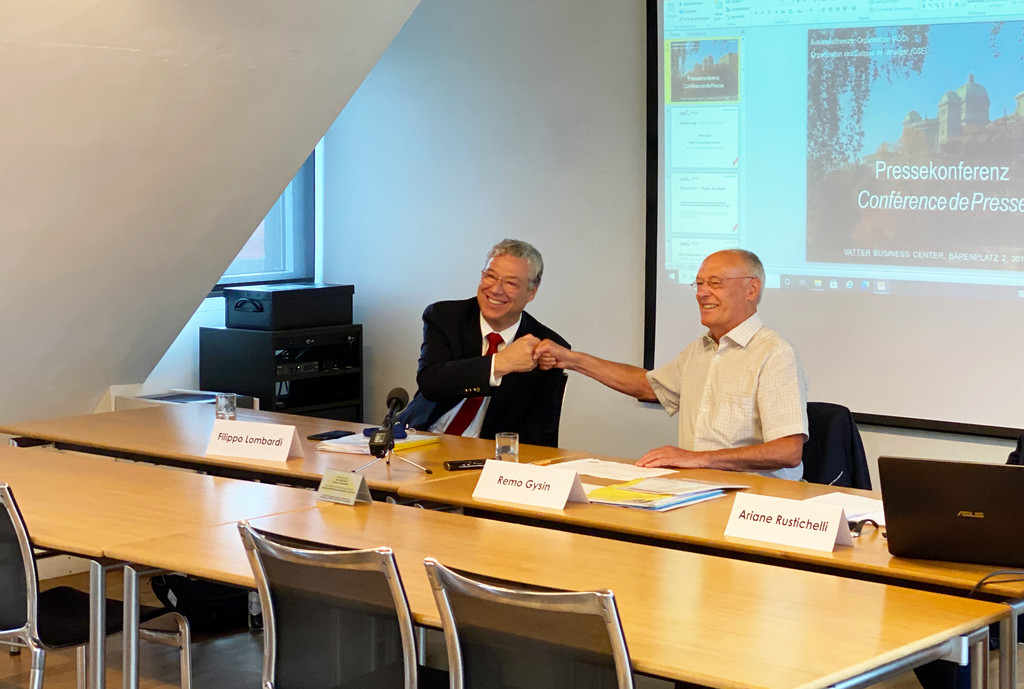
Swissinfo | New Swiss Abroad boss lays out his vision
He is outstandingly well-connected and an experienced navigator of political waters. Filippo Lombardi, the new president of the Organisation of the Swiss Abroad (OSA), spoke to SWI swissinfo.ch about changing attitudes towards the 10% of Swiss citizens who live outside Switzerland, recent disappointments and current challenges.
SWI swissinfo.ch: You were a Swiss expatriate at one point in your career. You lived in Brussels for six years after university. How was your experience?
Filippo Lombardi: I was young then and had fewer worries than most expatriate Swiss today. Bank accounts, e-voting, pensions – I had none of these basic concerns.
You were ahead of your time… Today a lot of people go away for a few years and then come back to Switzerland.
Yes, the share of expatriates who only stay abroad for a short time is continually growing, thanks to freedom of movement agreements with the EU and professional mobility. We must take that into account with our work at the organisation.
On the subject of freedom of movement, which is very important for the Swiss Abroad, as a citizen of Ticino, doesn’t this represent a conflict of interest for you? You protested loudly about the impact of freedom of movement, which puts particular pressure on the labour market in your canton. What is your position on this issue?
The situation with commuters from Italy is different in Ticino than in cantons with borders to other countries. The situation got dramatic in 2008 because of the economic crisis in Italy. At that time, highly qualified workers arrived who were prepared to accept any work at just about any wage. We had to make Bern aware of this. I absolutely defend the freedom of movement of people, but the problems in Ticino continue.
In 2011 you submitted a parliamentary initiative that led to the Federal Act on Swiss Persons and Institutions Abroad. How did that come about?
This goes back to 2005, when I was in the Senate and wanted the government to provide data on the value of the expatriate community to Switzerland in economic terms. Back then, the majority view in Switzerland and in parliament was that the Swiss Abroad are profiteers who, for instance, burden the pension system and are a loss-incurring business for the government. This view still surfaces from time to time, not just in parliament. People say: they emigrated, they’re not paying taxes anymore, so why should we look after them?
Is that question not justified?
It’s a sign of a very insular mindset. The reality is that many overseas workers are working for Swiss companies and come home to visit as tourists; many return after a few years and bring their expertise home to Switzerland. What’s more, many are still paying taxes, for example on their assets or on investment returns in Switzerland. And there are many older expatriates who emigrate because their pensions allow them to live better somewhere else. These are not profiteers, but people who relieve the burden on Switzerland. They paid contributions all their lives, and if they go away as pensioners, then Switzerland saves millions. This completely distorted view of Swiss Abroad must be corrected.
So how did that law on Swiss expatriates come about?
The government took five years to answer. The short version was: Yes, Swiss expatriates are a resource for this country but it’s too difficult to quantify their value to the economy. The government also called for a reorganisation of the many laws and regulations which affect the Swiss Abroad. In order to get this implemented quickly, I launched a parliamentary initiative.
Despite the law, there have been many big disappointments recently: no e-voting, no bank accounts, and social insurance questions remain unresolved. Has the OSA been lobbying hard enough? Does the question need more backers in parliament in Bern?
I think the Organisation of the Swiss Abroad is relatively well-connected in parliament. If we compare the situation now with where it was 20 years ago, then we have achieved a lot. Sympathy for the Swiss Abroad has definitely increased.
The setbacks had other causes. In the case of e-voting, a lot of factors conspired: technical reasons, the cantons’ responsibility in a federal system, costs, data security.
In 2017 parliament rejected a call by a member of the House of Representatives which would have guaranteed Swiss expats the right to open a bank account with a major Swiss bank. What happened there?
That, too, was to do with forces beyond our control. Banks are private businesses outside the sphere of state influence. We tried so many initiatives, but nothing worked. We couldn’t force it, but we did identify the Geneva Kantonalbank as a bank which today offers its services to expatriate Swiss with no discrimination.
You have an amazing network. You get on with everyone and know everyone. How will you use these assets for the OSA?
We have to be somewhat self-critical and say that as an organisation we have been too wrapped up with ourselves in recent years: a reorganisation of the administration, statuses, direct elections to the OSA board, problems that are hard to solve. I will also focus on our public image, website, name change…
So in future the OSA will be more outward-looking?
Of course the relationship between Switzerland and Europe and Switzerland and the world remains important. Democratic participation in all forms, including e-voting, remains the top priority, because if the Swiss Abroad can vote, then they automatically have more weight. My vision, though, is that we should offer more services. We receive a lot of enquiries about very individual special cases – each one is different. I think we should extend our advisory activities for this specific population.
Relations with the European Union remain on the agenda: Switzerland has snubbed Europe and ended talks on the framework agreement. Where should we go from here?
On the one hand, the EU didn’t really help us in the final phase of the negotiations. A bit more flexibility on their part might have made a solution possible. There was some anger on both sides and that was not a good basis for negotiations. Switzerland didn’t demand the negotiations – it was the EU. The EU wanted too much, and we didn’t negotiate well. Switzerland made too many concessions too early.
We need other friends, not just the EU.
So you argue that Switzerland didn’t snub the EU – rather Brussels snubbed Switzerland?
Let’s put it this way: Brussels has long wanted to make its life a bit easier. It’s hard to negotiate with Switzerland and put together a new contract after every change in European law. That is understandable, and if Switzerland were to join the European Economic Area – with automatic adoption of laws – that would be a more comfortable solution for Brussels. Even with member states, the EU often operates in a very centralised way. We have a different tradition in Switzerland. The federal government accepts that individual cantons find their own solutions in implementing national laws.
You sound very relaxed, almost optimistic?
Yes, well, I am no longer on the front line. On the one hand, I think we must find a solution with the EU. On the other hand, Switzerland should also negotiate more with other countries to obtain other free-trade agreements and political relationships – we need other friends, not just the EU.






Comments
Comments :
Je suis tout à fait d'accord avec Monsieur Lombardi qu'il convient de reintroduire le vote electronique. Dernièrement j'ai recu ici en Sicile mon bulletin de vote pour le referendum (du 26 septembre 2021) moins d'une semaine avant le vote! Les service de la poste italienne ici en Sicile ne sont pas tres efficaces. Precedemment lorsque je vivais en France je recevais du service des votations Genevois la possibilité de voter par internet, mais desormais ce n'est plus possible. Pourquoi?